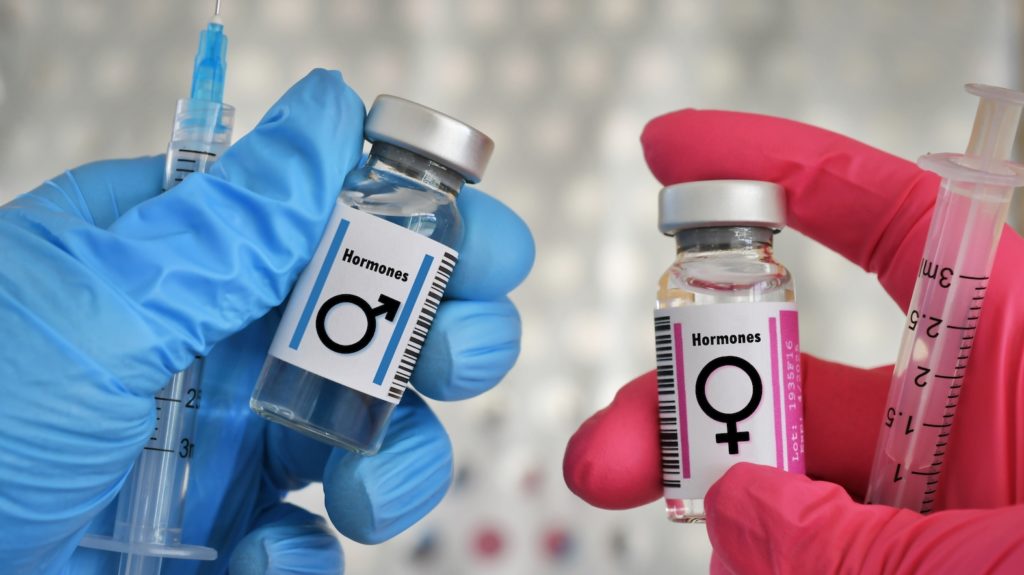Leaked internal documents have revealed that members of a prominent transgender advocacy organization admitted that the children who receive permanently life-changing transgender procedures are too young to be capable of giving informed consent.
The documents also show, according to a watchdog group, that the organization’s endorsement of transgender procedures for children is based on “pseudoscience.”
The group Environmental Progress published on Tuesday what it dubbed “the WPATH Files,” which it described as “semi-private conversations” inside the “internal online forum” of the World Professional Association for Transgender Health.
WPATH on its website bills itself as a “nonprofit, interdisciplinary professional and educational organization devoted to transgender health.” For years the group has advocated for the use of “puberty suppression” drugs and cross-sex hormones for young boys and girls. The group has also advocated for irreversible surgeries such as castrations and mastectomies for adolescents.
The WPATH guide “Standards of Care for the Health of Transgender and Gender Diverse People,” currently in its eighth edition, is used by health authorities in the U.S. and around the world to develop guidelines for transgender-related procedures. CNN reported that the guide is followed by “the world’s leading medical associations and courts of law.”
‘Not a scientific group’
In its report on WPATH’s internal documents, Environmental Progress said the communications reveal a “disregard for the scientific process” around transgender-centric medical procedures, particularly regarding the group’s “support for adolescent sex-trait modification involving puberty blockers, cross-sex hormones, and surgeries for minors suffering from gender dysphoria.”
WPATH’s “approach to medicine is consumer-driven and pseudoscientific, and its members appear to be engaged in political activism, not science,” the report said.
The report notes one January 2022 conversation in which the group’s president, Marci Bowers, admitted that the practice of blocking young patients’ puberty development is “in its infancy” and that the “long-term sexual health” of such individuals “needs to be tracked.” Despite the lack of data to support such procedures, WPATH in the eighth edition of its medical guidelines supported the use of puberty suppression in adolescent patients.
WPATH in its latest guidelines argues that young patients should be given access to hormonal transgender treatments so long as they demonstrate “the emotional and cognitive maturity required to provide informed consent/assent for the treatment.” However, in a May 2022 internal panel, doctors suggested that younger patients struggled to understand the effects of those treatments.
“When we start people on testosterone or estrogen, you know, we try to be as clear as we can about the stuff that’s going to be permanent and the stuff that’s going to go backwards,” Canadian endocrinologist Dan Metzger said during the panel.
“[But] I think the thing you have to remember about kids is that we’re often explaining these sorts of things to people who haven’t even had biology in high school yet,” he added.
In the same panel, child psychologist Dianne Berg argued that for children who have undergone “medical interventions,” it is “out of their developmental range” to fully understand “the extent to which some of these medical interventions are impacting them.”
“I try to kind of do whatever I can to help them understand best I can,” Berg said.
At another point in the May 2022 workshop, Metzger remarked that it is “always a good theory” to discuss “fertility preservation” with 14-year-old patients seeking gender procedures. But in those cases “I know I’m talking to a blank wall,” he said.
“We try to talk about it, but most of the kids are nowhere in any kind of a brain space to really, really, really talk about it in a serious way,” Metzger said. “That’s always bothered me, but you know, we still want the kids to be happy, happier in the moment, right?”
WPATH’s latest guidelines suggest that doctors should “inform and counsel all individuals seeking gender-affirming medical treatment about the options available for fertility preservation” before beginning puberty suppression or other procedures.
‘Science- and evidence-based benefits’
WPATH did not respond to a request for comment on Tuesday regarding the document release. Michael Shellenberger, the founder and president of Environmental Progress, said in the report that he had received the files from “a source or sources” who were familiar with his earlier investigative journalism work.
The transgender group has in the past been vocally opposed to restrictions on transgender-related medical procedures. In March of last year, in response to legislation in numerous U.S. states restricting transgender procedures, Bowers, the group’s president, said the regulations were aimed at “eliminating transgender persons on a micro and macro scale.”
“It is a thinly veiled attempt to enforce the notion of a gender binary,” Bowers argued.
In another statement that month, one opposing a measure by Missouri Attorney General Andrew Bailey to restrict transgender procedures on minors in that state, WPATH described its medical directives as “the foremost evidence-based guideline for the provision of [transgender] health care.”
Its care guidance is “based on the best available science with input from over 100 global medical professionals and experts and represents best-practice guidelines for the provision of gender-affirming health care,” WPATH said.
Shellenberger did not respond to a request for comment on Tuesday. In the report, he acknowledged the novelty of an environmental group publishing the bombshell transgender documents.
The activists of Environmental Progress, he said, are “pro-human environmentalists, and our mission is to incubate ideas, leaders, and movements for nature, peace, and freedom for all.”
“We thus work on a wide range of issues, from climate change to homelessness to freedom of speech, all of which constitute important aspects of our ‘environment,’” he wrote.
“At a moral level, we feel duty-bound to publish the WPATH Files and do everything within our power to encourage as wide an audience as possible to access them,” he said.
“We believe they show that WPATH is neither a scientific nor medical organization and should not be treated as one.”

